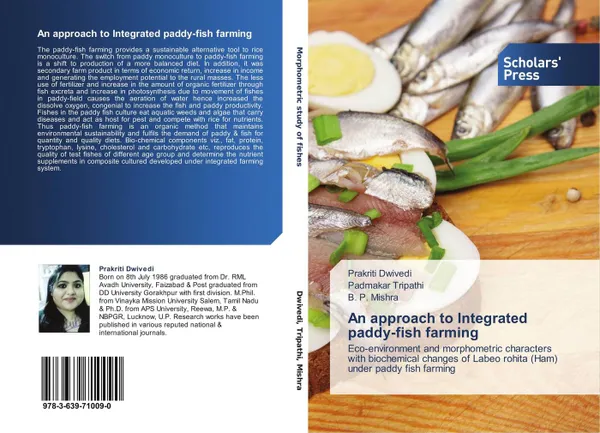An approach to Integrated paddy-fish farming
2014
140 страниц
Категория: Литература на иностранных языках
Язык: Английский
Тираж: 800
📒 The paddy-fish farming provides a sustainable alternative tool to rice monoculture. The switch from paddy monoculture to paddy-fish farming is a shift to production of a more balanced diet. In addition, it was secondary farm product in terms of economic return, increase in income and generating the employment potential to the rural masses. The less use of fertilizer and increase in the amount of organic fertilizer through fish excreta and increase in photosynthesis due to movement of fishes in paddy-field causes the aeration of water hence increased the dissolve oxygen, congenial to increase the fish and paddy productivity. Fishes in the paddy fish culture eat aquatic weeds and algae that carry diseases and act as host for pest and compete with rice for nutrients. Thus paddy-fish farming is an organic method that maintains environmental sustainability and fulfils the demand of paddy & fish for quantity and quality diets. Bio-chemical components viz., fat, protein, tryptophan, lysine, cholesterol and carbohydrate etc, reproduces the quality of test fishes of different age group and determine the nutrient supplements in composite cultured developed under integrated farming system.
Мнения
